CRIMINAL ARREST: WHAT NOW?
When someone is arrested and charged with a crime there are several things that will take place before they need to worry about a possible conviction and/or having a criminal record.
BEING ARRESTED
If a member of law enforcement believes you may have committed a crime and they have “probable cause” that you have done so, they will have the grounds to search your vehicle, your person, and even arrest you on suspicion of committing that crime. If you are arrested you will be taken to a local police or Sheriff's station to be booked and processed.
BAILING OUT OF JAIL
Unless a person is charged with a crime that is punishable by death, they are permitted, by right of law, to “bail out” of jail while they wait for their case to be resolved. This is most commonly done by seeking out the assistance of an expert bail bondsman. In the state of California bondsmen charge a fee equal to 10% of the defendant’s bail in order to post a bail bond at the jail. The bond allows the defendant to be temporarily released from custody pending their trial.
In some cases, family members will post a piece of property with the court in lieu of bail. In order to post a “property bond” the property being posted must have equity equal to twice the amount of the defendant’s set bail. A third option is to post the full bail amount, in cash, with the court. As long as the defendant goes to all their necessary court appearances the deed to the “property bond” or the “cash bail” will be returned to the person who posted it at the conclusion of the defendant’s case. This oftentimes takes a number of months.
Bail is set based on the severity of the crime a defendant has been charged with and whether they have a prior history of arrest. The more serious the crime, the greater that person’s bail will be.
COURT PROCEEDINGS
The Arraignment
If a person does not bail out of jail they will appear before a judge within three business days to be arraigned. At this time the judge will determine if there was probable cause to support the crime(s) the defendant is being charged with. The prosecutor will also have the opportunity to add additional charges and/or request an adjustment to the bail amount. It is at the sole discretion of the judge to raise, lower, or maintain bail.
Criminal Complaint
After your arrest the police report will be turned over to the District Attorney’s (DA) office. It will be up to the DA to determine if there is enough evidence to file charges. If they do decide to move forward the DA will then file a criminal “complaint” with the court. That complaint will list the allegations against the defendant and the complaint allows the case to move forward in the court system. If it is determined that there is insufficient evidence to move the case forward, charges will not be filed and the matter will be dropped.
The Pre-trial Conference
If your case is moved to trial the next step will be the pre-trial conference. During this conference the defense attorney will have the opportunity to discuss the case with the prosecutor. In some cases, the prosecution may offer the defendant a plea bargain, which would allow them to plead guilty to a reduced charge for a lesser sentence. If the matter is not resolved at the pre-trial conference, it will move forward to trial.
Trial
The Sixth Amendment of the Constitution provides persons charged with a criminal offense to be tried by a 12-person jury of their peers. During the trial both the prosecution and defense will have the opportunity to plead their case and to call on supporting witnesses. They will also be permitted to cross examine witnesses who have been called by the other side. It is the responsibility of the prosecution to establish “guilt without a reasonable doubt”. If this is established, the jury will be instructed to find the defendant guilty. If guilt cannot be proven beyond a reasonable doubt, they will be instructed to find the defendant “not guilty”. If the defendant is found not guilty they will be free to go and are not permitted to be retried for the same offense. If they are found guilty they must return to court once more in order to be sentenced.
The Sentencing Hearing
When the defendant returns to court for their sentencing hearing it will be up to the judge to decide which sentence will be imposed by the court. This may include probation, jail or prison time, mandated drug and/or alcohol testing, requiring the defendant to register as a sex offender, disallowing the person to vote or possess a firearm. The judge may also impose potential immigration consequences.
The Appeal
If a person feels they have been wrongly convicted of a crime they have the option of appealing the conviction to an appellate court. In order to make a successful appeal the defendant and/or their attorney must successfully argue a guilty verdict was imposed based on errors made by the trial court. If the appellate court agrees with that argument, they have the authority to “throw out” and “reverse” the conviction.
Granted Parole
Sometimes when a person is convicted of a crime and sentenced to jail time, they may be permitted to get out of jail early if they agree to a conditional release. During parole the defendant will still be supervised by the Department of Corrections and will still need to check in with their parole officer during set dates and times.
Expungement
In some cases, a criminal defense attorney may be able to successfully argue to have a conviction completely removed from a person’s record. This is called expungement.
BAIL BONDS ASSISTANCE
If you or someone you know has been charged with a crime and you need help bailing them out of jail, call our office now at 888-224-5466 or at 888-BAIL-BOND. If you need to speak with an attorney regarding preparing your case, check out our Top 50 California Criminal Defense Attorneys On Line.
Published: 05/02/2012

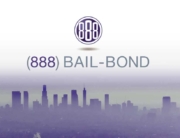
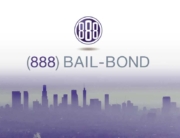
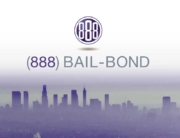

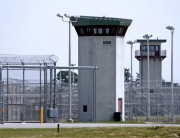
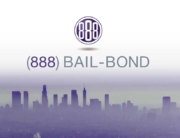
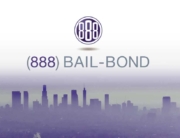
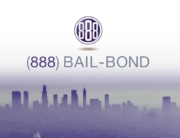
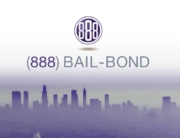
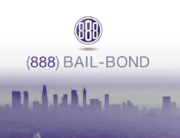




Follow Us
Facebook
Twitter
Google +1
LinkedIn
Youtube